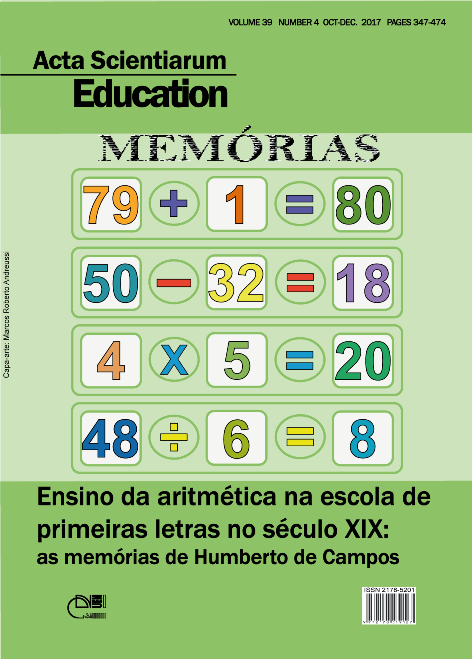<b>Morality, vocation, prudence and caring: a hard art to be a primary teacher in the imperial state of Pará (1838-1851)
Abstract
This article aims to investigate the condition of primary education teacher from the point of view of the presidents of the province of Pará, from the discourse of Soares Andréa in 1838 to the law 203 of 1851, approaching those days idea of a good teacher, the opinion about the teachers at work in the province and the actual conditions in which this professional acted. In their reports, speeches and discourses, presidents dealt with the general state of education and pointed out teachers in this scenario, highlighting their more specific comments on this professional as well as the conception of his work, as well as the established guidelines and requirements. The article is the result of a broader research on public education in Pará during the Second Empire, more specifically, between 1840 and 1852.
Downloads

This work is licensed under a Creative Commons Attribution 4.0 International License.
DECLARATION OF ORIGINALITY AND COPYRIGHTS
I declare that this article is original and has not been submitted for publication in any other national or international journal, either in part or in its entirety.
The copyright belongs exclusively to the authors. The licensing rights used by the journal are the Creative Commons Attribution 4.0 (CC BY 4.0) license: sharing (copying and distributing the material in any medium or format) and adaptation (remixing, transforming, and building upon the material thus licensed for any purpose, including commercial purposes) are permitted.
It is recommended that you read this link for more information on the subject: providing credits and references correctly, among other crucial details for the proper use of the licensed material.













































